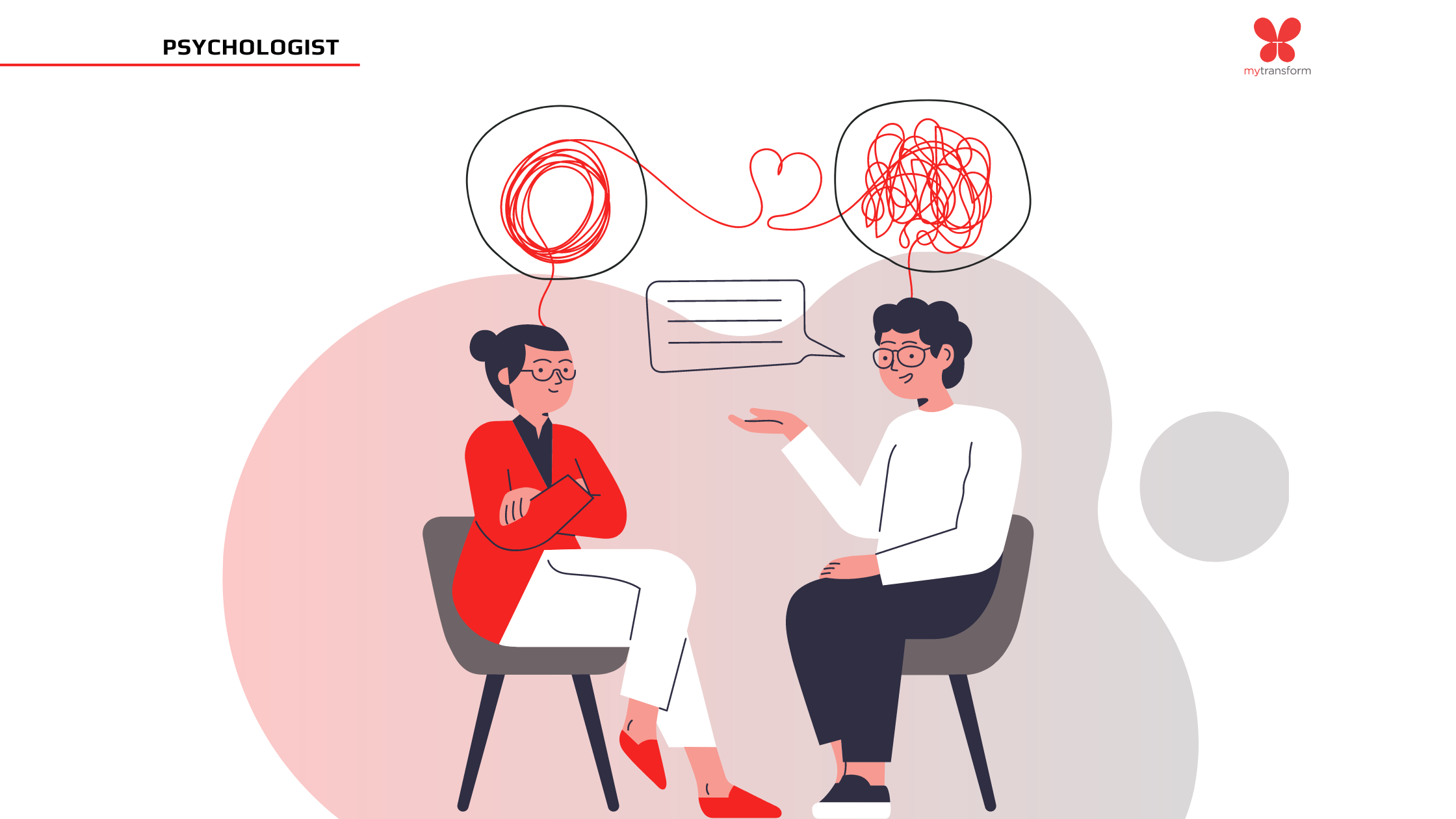Experience Lasting Change with the Best Psychologist in Delhi: Here's How
Experience Lasting Change with the Best Psychologist in Delhi: Here's How
Blog Article
Psych Treatment: A Comprehensive Guide to Methods and Results

Cognitive-Behavioral Treatment
Cognitive-Behavioral Treatment (CBT) is an extensively used psychotherapeutic strategy that concentrates on determining and customizing useless thinking and behavior patterns. Developed in the 1960s by Aaron T. Beck, CBT combines behavioral and cognitive theories to deal with different mental health problems, including depression, stress and anxiety, and stress-related conditions.
Techniques such as cognitive restructuring, exposure therapy, and skill-building workouts are generally used. Cognitive restructuring entails difficult and changing unfavorable idea patterns, while exposure treatment intends to reduce anxiety and anxiety through gradual exposure to feared circumstances or objects.
Evidence-based research study sustains the efficacy of CBT for a variety of mental conditions - Best Psychologist in Delhi. Its focus on ability acquisition and self-help techniques encourages customers to proceed progress separately after treatment concludes. The adaptability and effectiveness of CBT have actually made it a keystone in modern psychotherapeutic technique
Psychodynamic Methods
Rooted in the very early theories of Sigmund Freud, psychodynamic strategies focus on exploring the subconscious mind and its influence on behavior and emotions. These approaches aim to uncover surprise thoughts and sensations that might be driving maladaptive behaviors and emotional distress. Central to this method is the principle of inner conflict, usually originating from unresolved past experiences, especially those from childhood years.
Therapists making use of psychodynamic methods use a number of essential methods, consisting of totally free association, where individuals are encouraged to talk easily to reveal unconscious material, and desire analysis, which interprets the latent material of dreams. In addition, the expedition of transference and countertransference dynamics within the therapeutic connection is important. These interactions can give understandings into the patient's internal world and relational patterns.
Psychodynamic treatment is usually longer-term contrasted to various other techniques, supplying a deep and extensive understanding of the person's subconscious. Research study suggests that it can be especially efficient for complex mental wellness problems, such as individuality problems and persistent clinical depression. By cultivating self-awareness and emotional understanding, psychodynamic treatment looks for to bring unconscious material to awareness, making it possible for individuals to accomplish lasting and meaningful change in their lives.
Humanistic Methods
Building on the foundations laid by psychodynamic methods, humanistic methods offer a distinct point of view concentrated on specific prospective and self-actualization. Stemming in the mid-20th century, these methods focus on the intrinsic goodness and growth possibility of people, highlighting a holistic sight of human experience. Secret figures such as Carl Rogers and Abraham Maslow have actually dramatically affected this therapeutic approach, which includes approaches like client-centered therapy and Gestalt treatment.
Client-centered treatment, created by Rogers, plays a critical duty in humanistic techniques. The specialist's function is more of a facilitator than an authority, encouraging clients to harness their inner sources for recovery.
Gestalt therapy, another vital humanistic strategy, highlights existing minute understanding and the combination of mind and body. By concentrating on the "here and currently," clients acquire greater insight right into their current emotions and habits. Strategies such as role-playing and directed visualization are often employed to aid clients gain a deeper understanding of themselves, ultimately resulting in boosted self-awareness and satisfaction.
Integrative Treatments
Integrative treatments represent a synthesis of numerous therapeutic methods tailored to satisfy the special needs of each customer. This method acknowledges the intricacy of human psychology and the complex nature of mental health and wellness problems. By integrating elements from different institutions of psychiatric therapy-- such as cognitive-behavioral therapy (CBT), psychodynamic therapy, and humanistic approaches-- integrative treatments offer a more adaptable and all natural visit this web-site treatment standard.
Practitioners of integrative therapy examine each client's particular requirements, signs and symptoms, and personal history to design a customized therapy plan. This personalized approach improves the capacity for therapeutic success by dealing with the source of mental distress and advertising total wellness. Strategies may consist of mindfulness workouts, cognitive restructuring, and emotional processing, each selected to target different facets of the client's issues.
Furthermore, integrative treatments highlight the therapeutic connection, viewing the client-therapist bond as an essential element of reliable treatment. This relationship promotes an encouraging setting where clients feel secure to explore and resolve their concerns. The adaptability of integrative treatments makes them suitable for a broad series of conditions, including anxiousness, clinical depression, injury, and social troubles, consequently enhancing their applicability and efficiency in diverse medical setups.

Determining Therapy End Results
Reviewing the efficiency of psychotherapy is vital for both customers and medical professionals to make certain that the therapy is producing the wanted outcomes. To accomplish this, different approaches and tools are utilized to measure therapy outcomes methodically. Standard analysis tools, such as the Beck Anxiety Stock (BDI) and the Generalized Anxiousness Problem 7 (GAD-7), provide quantitative data on sign intensity and adjustments with time.
Along with standard devices, qualitative techniques like client self-reports and clinical meetings supply beneficial understandings right into the personal experiences and viewed progress of customers. Regularly scheduled evaluations, commonly at the see page beginning, midpoint, and end of treatment, help in tracking the trajectory of renovation or determining areas requiring change.
End result measurement is not restricted to signs and symptom reduction; it additionally encompasses useful enhancements in every day life, such as much better social connections, boosted job productivity, and enhanced total health. Modern advancements in electronic health have presented mobile apps and on the internet systems that assist in real-time tracking and feedback, better improving the assessment process.
Inevitably, an extensive method to gauging treatment results ensures that healing interventions are reliable, reliable, and tailored to satisfy the private requirements of customers, thereby maximizing the overall therapeutic experience.
Final Thought
Psychotherapy provides a multifaceted selection of techniques intended at addressing particular mental wellness concerns and improving total well-being. Cognitive-Behavioral Therapy and psychodynamic strategies target inefficient ideas and subconscious impacts, specifically. Humanistic methods focus on individual growth and self-actualization, while integrative therapies combine numerous approaches for tailored therapy plans. Reviewing therapy results with standardized assessments and qualitative methods makes certain a detailed understanding of performance, inevitably leading clients towards enduring psychological health and wellness renovations.
From the structured approach of Cognitive-Behavioral Treatment (CBT) to the deep exploration of the subconscious in psychodynamic therapy, each method brings distinct benefits. Its emphasis on ability acquisition and self-help techniques encourages customers to proceed progress separately after treatment concludes (Best Psychologist in Delhi). Trick figures such as Carl Rogers and Abraham Maslow have dramatically influenced this healing technique, which encompasses approaches like client-centered therapy and Gestalt therapy

Report this page